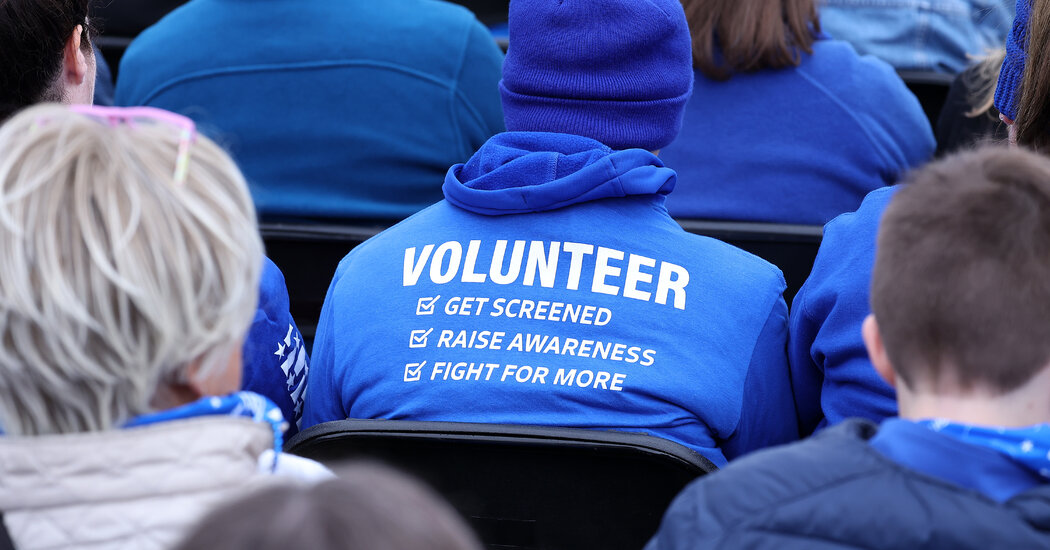Many patients are reluctant to undergo colonoscopies or conduct at-home fecal tests. Doctors see potential in another screening method.
Early detection of colon cancer can prevent a majority of deaths from this disease, possibly as much as 73 percent of them. But just 50 to 75 percent of middle-aged and older adults who should be screened regularly are being tested.
One reason, doctors say, is that the screening methods put many people off.
There are two options for people of average risk: a colonoscopy every 10 years or a fecal test every one to three years, depending on the type of test.
Or, as Dr. Folasade P. May, a gastroenterologist at UCLA Health puts it, “either you take this horrible laxative and then a doctor puts an instrument up your behind, or you have to manipulate your own poop.”
But something much simpler is on the horizon: a blood test. Gastroenterologists say such tests could become part of the routine blood work that doctors order when, for example, a person comes in for an annual physical exam.
“I think this is going to start taking off,” said Dr. John M. Carethers, a gastroenterologist and the vice chancellor for health sciences at the University of California, San Diego.
About 53,000 Americans are expected to die from colorectal cancer this year. It is the second-most common cause of cancer-related deaths in the United States, and while the death rate in older adults has fallen, it has increased in people under age 55.
